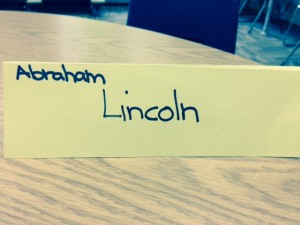In American history the original thirteen colonies were struggling to free themselves from the rule of the British monarch. The thirteen states were the beginning of the United States of America. Representatives of the thirteen colonies got together to create the Declaration of Independence. The Declaration of the United States is the framework for the freedoms and rights we have as citizens of this country. Today, many of our rights are debated. Here are few examples of topics that are debated all the time: Should products like shampoo be tested on animals? Should homework be banned? Should children own and use cellphones?
Debate is a formal discussion on a particular topic in a public meeting or legislative assembly, in which opposing arguments are put forward. As participants of a democratic society and as citizens of the United States, we have the right to part of decisions that are made. Decisions that effect us.
Second grade students will learn the art of debate to better support their persuasive writing.
In 1859, Senator Stephen A. Douglas was up for re-election to his Illinois Senate seat. His opponent was Abraham Lincoln. During the campaign, the two men faced off in a The Lincoln-Douglas Debates of 1858, a series of seven debates on the issue of slavery. On Election Day, Douglas was re-elected, but Lincoln’s position on the issue and his inspiring eloquence had earned him wide recognition that would aid his eventual bid for the presidency in the presidential elections of 1860.
 Similarly to the respect Lincoln-Douglas established with their first debate, we too must establish respect. To establish respect each student will be referred to as “Senator.” Each student will create a name placard with their last in the middle of the card and their first name in the upper left corner. During the debate, students will only be referred to as “Senator.”
Similarly to the respect Lincoln-Douglas established with their first debate, we too must establish respect. To establish respect each student will be referred to as “Senator.” Each student will create a name placard with their last in the middle of the card and their first name in the upper left corner. During the debate, students will only be referred to as “Senator.”
Moderator: calls the debate to order, poses the debatable topic then introduces the debaters and their roles.
Our introductory topic will be: Dogs are better pets than cats.


